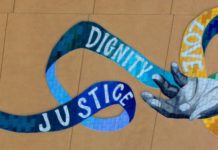MIA Survey: Ex-patients Tell of Force, Trauma and Sexual Abuse in America’s Mental Hospitals
In a MIA survey of people who had been patients in mental hospitals, nearly 500 respondents told of an experience that was often traumatic, and frequently characterized by a violation of their legal rights, forced treatment with drugs, and physical or sexual abuse. Only 17% said they were “satisfied” with the “quality of the psychiatric treatment” they received.
Appealing to our Elected Representatives
This is the final of four installments about the bizarre, ongoing conduct of psychiatrists at Upton House, an Eastern Health psychiatric facility in Melbourne, and the collusion with their conduct by all relevant agencies. This last installment will document the failure, so far, of the State and Federal Governments to intervene in even this most extreme and blatant example of abuse of power by psychiatry. If I, as a Professor of Clinical Psychology with 40 years clinical and research experience in this field, can be so easily dismissed/ignored by the relevant systems in Victoria, what chance do the average users of mental health services and their families have of being heard in this State?
ECT for Agitation and Aggression in Dementia
The International Journal of Geriatric Psychiatry published an article titled Safety and utility of acute electroconvulsive therapy for agitation and aggression in dementia, which concludes "Electroconvulsive therapy may be a safe treatment option to reduce symptoms of agitation and aggression in patients with dementia whose behaviors are refractory to medication management." But the participants were not a random selection of people taking the drugs in question. Rather, they were individuals selected because of aggressive behavior, most of whom had been taking some or all of these drugs on admission. So it is a distinct possibility that the aggression was a drug effect for many, or even most, of the study participants.
Psychiatric Diagnosis Can Lead to Epistemic Injustice, Researchers Claim
A discussion of the role of epistemic injustice in the experiences of patients diagnosed with psychiatric disorders.
Coercion in Care
To this day I do not know how I found my way back. I think it might’ve had something to do with willpower, as I was NOT going to lose myself. I was NOT going to end up like those people who were living indefinitely in the hospital—those “chronic schizophrenics”, as they say. I was going to find my way back, back to myself.
The Mental Health Tribunal
I am trying to demonstrate, in a series of installments, how in the 21st century we still often fail to establish effective safeguards for the rights of people who end up in our psychiatric systems. This particular example is taking place in 2016, in Melbourne, and involves over 50 consecutive electro shock ‘treatments’ and multiple, sometimes very lengthy, periods of being tied to a bed. In this third installment, I offer my interactions with another body who is supposed to protect our rights when under the ‘care’ of psychiatrists, the Mental Health Tribunal.
“All for the Best of the Patient”
For psychiatric ‘help’ to happen by force is a paradox and makes absolutely no sense. It can destroy people's personality and self-confidence. It can lead, in the long run, to physical and psychological disability. My dear daughter Luise got caught in this ‘helping system’ by mistake, but she didn't make it out alive. I'm sad to say I later discovered that the way Luise was treated was more the rule than the exception.
VA Hospitals Perform Worst on Inpatient Psychiatric Care
The results of the cross-sectional study show that U.S. Department of Veterans Affairs (VA) owned hospitals perform worst on most measures.
BPS Releases Review of Alternatives to Antipsychotics
BPS releases report encouraging behavioral interventions for people with dementia, rather than antipsychotics
Support CRPD Absolute Prohibition of Commitment and Forced Treatment
Mad In America bloggers, and everyone who is interested, you are cordially invited to participate in a Campaign to Support the CRPD Absolute Prohibition of Commitment and Forced Treatment. The requested action is to write a blog post or contribute artwork, relevant to the purpose of the campaign, i.e. discussing and supporting the absolute prohibition that is promulgated under the Convention on the Rights of Persons with Disabilities (CRPD). Posts should be ready for March 29, 2016, the opening day of the 15th session of the Committee on the Rights of Persons with Disabilities.
Lancet Study Questions Safety of Locked Psychiatric Wards
A new study published in Lancet Psychiatry challenges the common practice of locking psychiatric wards to prevent patients from attempting suicide or leaving against...
The Curious Case of over 50 Consecutive ECTs in Melbourne
Over the past few weeks I have been witness to, and increasingly involved in trying to stop one of the most extreme examples of psychiatric brutality I have encountered in my 40 years in this field. And I have encountered quite a few. I suggest you sit down before watching and reading. This is not your usual, run-of-the-mill psychiatric abuse story.
New Medications Fail to Show Efficacy for Alzheimer’s Disease
Three phase III clinical trials assessing the efficacy of Lundbeck’s investigational drug idalopirdine for Alzheimer’s disease have failed
United Nations Rep Brings Attention to Human Rights Violations in Psychiatry
Dr. Dainius Pūras argues that the status quo in mental health treatment is no longer acceptable and demands political action to promote human rights.
Nuanced History of Asylums Shows Context Matters
A bottom-up approach to understanding the history of asylums allows us to learn from past successes and failures in the mental health system.
Foxes Guarding the Henhouse: the Role of the Chief Psychiatrist
I do not wish to discuss an individual patient. I wish to discuss the conduct of the psychiatrists at Upton House, Dr Katz in particular, who have been responsible for the administering of over 50 ECTs consecutively to a patient, and have reportedly repeatedly restrained this patient to a bed, on one occasion for approximately 60 consecutive days.
Measuring How Mental Health Professionals See Service Users’ Rights
A new scale has been developed and validated to examine beliefs held by mental health professionals towards service users’ rights.
Danger Ahead if HR 2646 (the “Murphy Bill”) Passes!
Dear Reader, I am reaching out to you in the hope that you will get this message in time to act! Even if you only have time to read the first two sentences of this blog, please click here for instructions on how you can win the hearts and minds of our federal legislators and help them understand why HR 2646 – proposed by Rep. Tim Murphy and called the Helping Families in Mental Health Crisis Act – is a bad bill
Risk of Suicide After Hospitalization Even Higher Than Previously Estimated
New analysis of post-discharge suicide rates finds estimates 6 times higher than recent studies.
The CHRUSP Call to Action, and Its Significance
Various instruments of the United Nations have commented on forced treatment, or involuntary confinement, or both (for details, see Burstow, 2015a), and a number of truly critical additions to international law have materialized. Arguably, the most significant of these is the Convention on the Rights of Persons with Disabilities. What makes it so significant? For one thing, it is because this landmark convention puts forward nothing less than a total ban on both involuntary treatment and the involuntary confinement of people who have broken no laws.
Rethinking Public Safety – The Case for 100% Voluntary
It is time to create an entirely voluntary psychiatric system. International conscience is clear. The singling out of people with psychosocial disabilities is not worthy of a free society. There are better, safer ways to address legitimate public needs.
Escape from British Columbia
Rob Wipond reports on a constitutional challenge in British Columbia against a key component of the province’s Mental Health Act. “This case isn’t arguing...
Study Privileges the Voices of Persons Hospitalized Against Their Will
How people are treated after being hospitalized can either help them to overcome the traumatic effects of coercion or make them worse.
Study Identifies Psychiatric Patients at Greatest Risk of Coercion
In an effort to reduce coercion, researchers isolate associated factors including age, relationship status, location, and diagnosis.
Humanizing Mental Healthcare by Reducing Coercive Practices
A review of the literature demonstrates that coercive practices lack empirical support and violate human rights.























